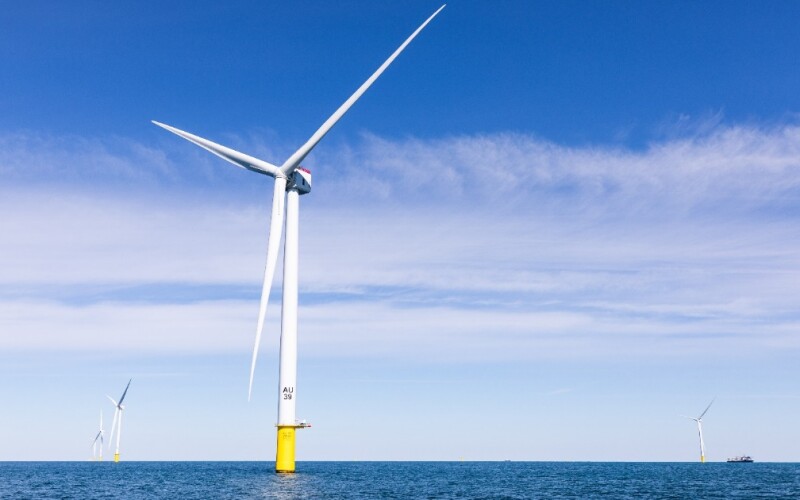Economic and supply-chain warning signs are flashing again in the international wind energy sector.
Turbine manufacturer GE Vernova said Sept 20 it will downsize its offshore efforts, after a reported $300 million third-quarter loss in its wind business overshadowed the marketing push of its top-line Haliade-X machine.
A Haliade-X turbine lost a blade to fracture on the Vineyard Wind project off Massachusetts in July, following two other blade failures on projects in Europe.
GE Vernova officials said the blade breakages were not due to design faults; the Vineyard Wind breakup was blamed on a manufacturing defect at a plant in Quebec. But GE Vernova said its planned pullback now could cost 900 production jobs.
Days before, BP announced Sept. 16 its plan to sell its onshore wind assets in seven U.S. states, following a pause in the company’s offshore wind plans.
The moves under CEO Murray Auchincloss are a reversal of his predecessor Bernard Looney’s much-touted rebranding of BP as “Beyond Petroleum.” In June Reuters reported that shareholder discontent led to a return toward core oil and gas production.
Still, the unrelenting U.S. push to develop offshore wind plunged into deeper waters in late summer, with new lease sales announced off the Oregon coast and in the Gulf of Maine.
The leases are the first attempt by the Bureau of Ocean Energy Management to bring floating wind turbines into the U.S. market. The sales are opening a new front in legal challenges to BOEM’s permitting process, already under siege from East Coast beach resort communities and the commercial fishing industry.
“The New England Fishermen’s Stewardship Association (NEFSA) remains steadfast in its opposition to the industrialization of our oceans, despite the shrinking of the original proposed lease area,” said NEFSA’s founder and CEO Jerry Leeman, a New England trawler captain.
“The final eight lease areas encompass a total of 827,886 acres in the Gulf of Maine and pose an existential threat to all marine species, habitat, and to the livelihoods of current and future generations of sustainable fishermen upon whom their communities rely on for survival,” said Leeman. “The six lease areas in the southern Gulf of Maine comprise a Great Wall of Windmills that threaten mariners and the marine environment.”
In Oregon the Confederated Tribes of the Coos, Lower Umpqua and Siuslaw Indians filed a lawsuit seeking to block the Coos Bay and Brookings lease sales that the Bureau of Ocean Energy Management planned for October.
“Coastal tribes have repeatedly met with BOEM urging BOEM to take its time to develop wind energy in a way that does not adversely impact Tribes and the resources which they depend on,” said Tribal Council Chair Brad Kneaper.
“BOEM has repeatedly disregarded these requests, telling the Tribes that wind energy development is being driven by the White House.”
“In addition to creating underwater noise that puts marine mammals at risk, the heavy diesel-powered hammer that will be used to ‘pile drive’ two hundred 50-foot-diameter steel foundations into the seabed will create significant airborne noise said Bob Stern, president and co-founder of the New Jersey group Save Long Beach Island. “And that noise will be audible on shore because sound can travel much better over water.”
“The level of noise created by pile driving and turbine operation would exceed noise levels known to cause health problems and sleep and other disturbances,” said Stern. “Those onshore noise levels would “clearly violate the 50-decibel noise ordinance level for Brigantine,” a beach community within 9 miles of the planned Atlantic Shores wind turbines, he said.




